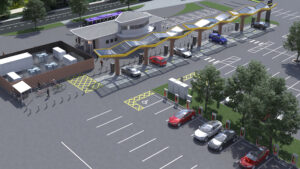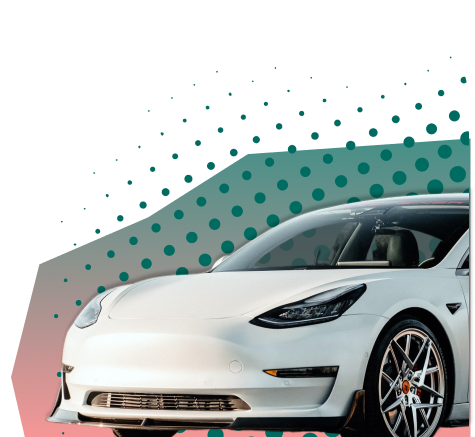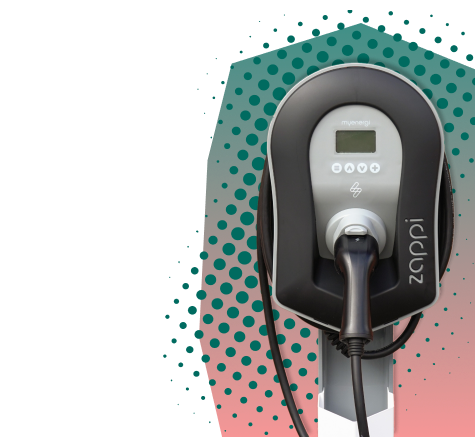Electric cars lost their image of being inconvenient and expensive a long time ago and with many countries around the world banning the sale of petrol and diesel cars as of 2030, consumers will soon be dependent on charging infrastructure that is accessible, simple and appealing.
The EV charging station market is expected to grow from $5.3 billion in 2018 to more than $30 billion in 2023. From swappable battery networks to flexible lithium polymer batteries, engineers and manufacturers are discovering better ways to keep electrics on the road.
In light of this, we investigated the evolving EV charging landscape and discover what the future of electric roads will look like.
The Barriers To EV Charging
Worries around charging infrastructure has been cited as the biggest perceived disadvantage to electric vehicles, according to the Department For Transport. Disappointment over the lack of public charging points and their distance from other amenities and services are rising concerns, as well as charging bays being small in design with not much space to manoeuvre affecting accessibility for disabled and older drivers.
Long journeys in an EV requires extensive planning, followed by downloading apps and setting up accounts to charge your car when the battery dies. Unlike petrol stations, you can’t just park up, charge and pay; only 8% of chargers in the UK are rapid and accept contactless payments. Consumers are seeking universal access – one app, one Radio Frequency Identification card and one account.
There are also obstacles throughout the supply chain; building permits can take up to six months to secure, acquiring a grid connection can take two years, and a lack of supply of high-speed chargers creates a possible supply-constrained market in the next decade.
What Do Future Charging Stations Look Like?
An Energy Superhub launching this year in the UK offers a blueprint for the future of zero-emission driving. Home to 38 fast and ultra-rapid chargers, the £41 million project is the first of 40 similar sites planned by Pivot Power across the UK to help deliver charging infrastructure needed to meet predictions of 36 million EVs on UK roads by 2040.
Big stations are the only way to provide charging capacity to the growing number of EVs descending on our roads. Mirroring petrol stations that have high visibility and ease of use, drive-through charging stations will likely become the norm.
Charging hubs is also an untapped opportunity for petrol stations. A Shell service in West London will be the first UK petrol station to be entirely replaced by electric vehicle chargers. Similar changes are already underway in Norway and the US, where fuel pumps are being removed in favour of EV chargers in preparation for a transition to electric vehicles.
Who are the leaders in EV Charging?
-
ChargePoint
With 60,000 charging points in total, ChargePoint claims to manage the world’s largest network of electric vehicle charging points. Whether it is charging cars, delivery vans or buses, it is estimated that someone plugs into the ChargePoint network every 2 seconds.
This year, ChargePoint has launched a global fleet solution portfolio designed to offer everything businesses need to transition to electrification and optimise charging. The portfolio offers fleet management software combined with ChargePoint’s AC and DC fast charging solutions which balance charging costs with operational readiness for light- to heavy-duty vehicles across depot, on-route and at-home charging.
-
EVgo
Installing 1,050 chargers in more than 66 metropolitan areas across the US, EVgo operates the largest network of public fast-charging stations in the US. A recent partnership with technology leader, ABB, has led to the first “high-power” fast-charging station in Fremont, California.
In 2021, they unveiled a new reservation programme at 17 US locations, enabling drivers in those markets to reserve EV chargers ahead of time.
“We heard directly from a number of our customers that they’d value the ability to reserve fast chargers ahead of time so they know it will be available for them during their weekly grocery shop or kids’ baseball practice,” Cathy Zoi, CEO of EVgo.
-
Shell
Famously known as being one of the big energy players in the market, Shell has begun to invest in the electric vehicle charging market. Their renewed focus towards alternative energy solutions can be seen by their investments; Shell claims to invest $1 billion a year towards green energy.
In 2017, Shell acquired NewMotion, an EV charging specialist with more than 30,000 points across Europe and access to 50,000 more. The energy giant also took part in an investment round for Ample, who offer an alternative to conventional charging by using robotics technology.
This year, Shell launched their first charging station in France. Located near the Hôtel de Ville and Église Saint-Merry, the charging station will serve as a central electric vehicle hub for Parisians in response to Shell’s commitment to electrify mobility in France.
-
Hyundai
The car manufacturer has teamed up with Kia to develop a wireless electric vehicle charging system, whereby an autonomous electric car parks itself over an EV charging point. This is planned to launch in the next few years as part of the companies integrated autonomous car offering.
Another of Hyundai’s charging innovations is a solar charging system for cars, whereby the solar panel is integrated into the car roof.
Inevitably, how our roads will look in years to come will be very different to how they look now. Petrol and diesel cars will be a thing of the past and charging points will be around every corner.
The technology to enable the rollout of this infrastructure requires talented engineering teams to deploy. As GreenTech recruiters who specialize in future mobility, our Consultants have a network of highly skilled talent to help scale these teams to meet the impending EV demand. If you are looking to scale your mobility startup or need advice on how to go about this, get in touch.












